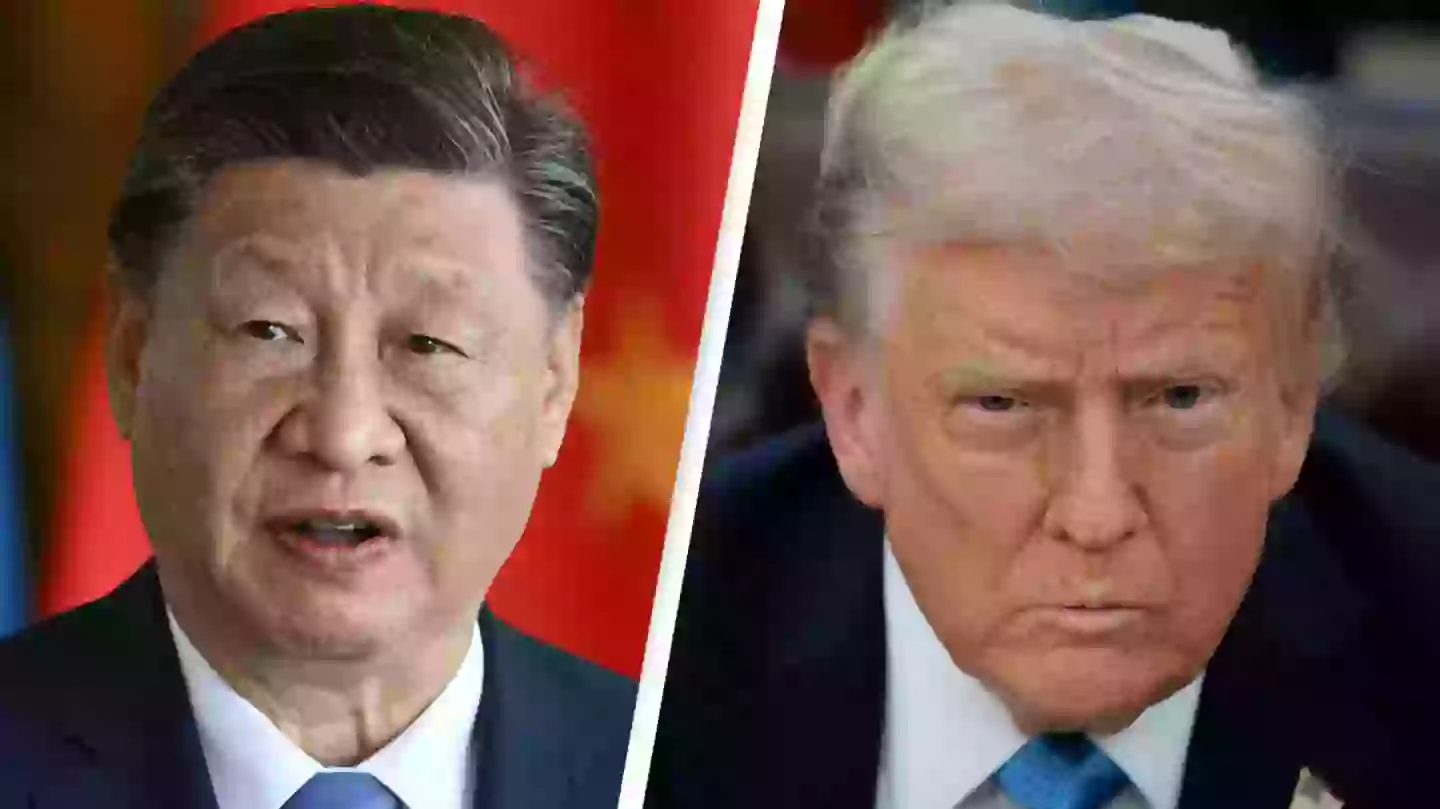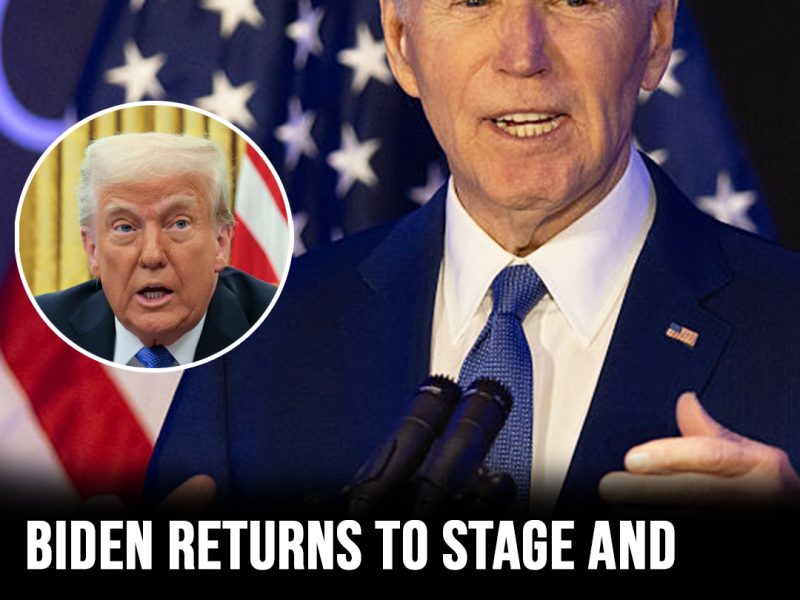The trade war has began as President Donald Trump’s taxes on Chinese goods has sparked a response from President Xi Jinping
China has hit back at the US after President Donald Trump imposed a tariff on items shipped from the East Asian country.
The new POTUS implemented the tariffs as he seeks to tackle what the White House has described as an ‘extraordinary threat posed by illegal aliens and drugs, including deadly fentanyl’.
When it comes to China specifically, a press release from the White House claimed Chinese officials had ‘failed to take the actions necessary to stem the flow of precursor chemicals to known criminal cartels and shut down money laundering by transnational criminal organizations’
February 4, 2024 – the day Trump‘s trade war began, and within minutes of the tariffs taking effect, President Xi Jinping retaliated.
What are tariffs?
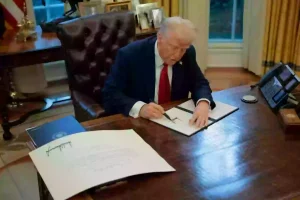
Tariffs are taxes imposed on foreign goods, meaning many of these goods will cost more to sell in the US – so ultimately, the consumer will pay.
Advanced countries fell out of favor with tariffs following World War II, because they often lead to ‘reduced trade, higher prices for consumers, and retaliation from abroad’, the Council on Foreign Relations reports… which is what we’ve seen from China.
On Saturday (February 1), Trump signed an executive order to impose 25 percent tariffs on imports from Canada and Mexico, while all energy resources from the US’ northern neighbor faced just a 10 percent tariff, as well as an additional 10 percent tariff on shipped goods from China – coming into play today (February 4).
China’s response to Trump’s tariffs
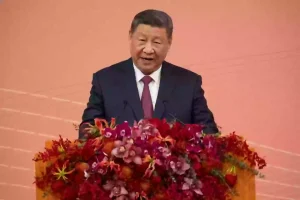
China’s Finance Ministry has announced plans to impose taxes of 15 percent on coal and liquified natural gas from the US, as well as a 10 percent levy on crude oil, farming equipment and some cars. These will come into play on Monday (February 10).
The nation has also released a statement detailing plans to investigate Google.
It read: “Because Google is suspected of violating the Anti-Monopoly Law of the People’s Republic of China, the State Administration for Market Regulation has initiated an investigation into Google in accordance with the law.”
Meanwhile, the Chinese Commerce Ministry and its Customs Administration claimed it was also imposing export controls to ‘safeguard national security interests’ on tellurium, molybdenum, tungsten, ruthenium and ruthenium-related items.
UNILAD has contacted Google for comment.
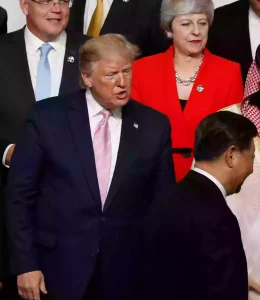
Why Trump imposed tariffs on China, Canada and Mexico
The Republican claims Canada, Mexico and China pose an ‘extraordinary threat’ due to the number of ‘illegal aliens and drugs’ smuggled into the States, and even constitutes it as a ‘national emergency’.
In regards to China specifically, the White House added: “In response to China’s intellectual property theft, forced technology transfer, and other unreasonable behavior, President Trump acted with conviction to impose tariffs on imports from China, using that leverage to reach a historic bilateral economic agreement.”
It all stems from a talk he gave to the House GOP (Grand Old Party, otherwise known as the Republican Party) retreat in Florida, toward the end of last month.
There he vowed to end federal income taxes, in favor of taxing foreign countries through tariffs – which he has done so far with China, while suspending the taxes imposed on Canada and Mexico’s shipped goods after both agreed to send more forces to the border.
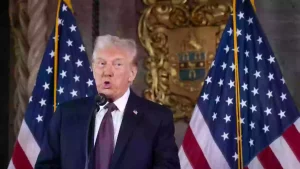
If you’re thinking of splashing out on a new cell phone, you might want to do so before tomorrow – with prices hikes imminent.
Mobiles aren’t the only necessities expected to cost a fair chunk more, in fact there are six other items that all might be worth buying before President Donald Trump‘s tariffs take effect, according to the Daily Mail.
On Saturday (February 1), Donald Trump signed off on an order imposing ‘catastrophic’ tariffs to ‘hold China, Mexico and Canada accountable for their promises to halt the flood of poisonous drugs into the US’.
The order places 25 percent tariffs on goods imported from Canada and Mexico and a 10 percent tax on China and to back this further, Trump also declared a national emergency under the International Emergency Economic Powers Act.
Without further ado, let’s get into it.
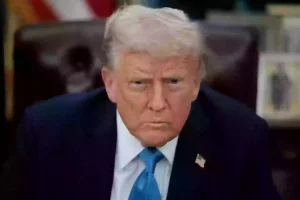
Cell phones
It isn’t the first time China has had tariffs placed on goods it’s wanting to sell in the US, the only difference now is that smartphones manufactured in the East Asian country will cost 10 percent more for to sell them in the States.
In a 2021 United Nations report, China accounted for 30.5 percent of all cell phones manufactured worldwide – with tech giants Apple opting for many of its products to be created overseas in China rather than in America.
Liquor
If you’re a fan of tequila or whisky, then you may want to grab your ID and head to your local liquor store because alcohol is among the list of things the US relies heavily on from Mexico and Canada.
According to the trade group Distilled Spirits Council of the United States, in 2023 Canada imported the second-most amount of spirits into the US, with Mexico importing the third-most – only the European Union (EU) shipped more into the country.
Mexico imported $4.6 billion worth of tequila into the US in the same year, while $108 million worth of mezcal also crossed the same border.
Meanwhile, $202.5 million worth of whisky was imported from Canada, with a further $537m worth of spirits also coming from the US’ northern neighbors in 2023.
American whiskey shipping to the EU is set to face a huge 50 percent tariff, with Canadian Prime Minister Justin Trudeau already telling Americans Canada will impose a 25 percent tariff on all US items – with Mexico expected to follow suit.

Cars and auto parts
Over one in five cars and light trucks sold in the US are reportedly built either side of the US’ borders. In 2023, $106 billion worth of motors were shipped into the US from Mexico and Canada – $69 billion from the south, and $37 billion from the north.
Meanwhile, a further $98 billion worth of car parts also came from the two countries – $78 billion from Mexico and $20 billion from Canada.
Popular toy trucks
If you’re a parent you may be familiar with Tonka trucks, or you might have even had one as a child yourself – which is likely to be the case with a large portion of Americans with more than one million sold in the US each year.
Unfortunately, they are all manufactured in China – so if you thought they were already an expensive present for your kids… they could soon be a little more costly.
Gasoline and crude oil
This could be the thing that hurts Americans the most, or one that is the most obvious.
In January to November last year, the US’ northern neighbor sent $90 billion worth of crude oil to the US, while Mexico shipped $11 billion.
It comes as no surprise that Canada is the largest importer of crude oil into the country, with Mexico in second place.
While Canadian oil is currently set to be hit with a 10 percent tariff rather than a 25 percent one, it could still have a big impact on consumers.
Tariffs on Canadian oil imports is expected to push up prices of gasoline – with TD Economics suggesting it could cost around 30 to 70 cents more per gallon to fill up your motor.

Fruit and veg
The price of an avocado and or a pack of tomatoes may go up due to the Trump’s tariffs.
The US purchased over $45 billion in food and farming products from Mexico in 2023 – with almost two-thirds of all imported veg coming from the US’ southern neighbor, as well as just under half of all fruits and nuts shipped to the country.
